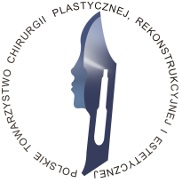Tendon Repair
The functional deficit of the hand resulting from the tendon injury depends on the degree and type of the damaged tendon.
Sometimes, the tendons are torn in a closed mechanism (without a hand injury), for example as a result of a chronic inflammatory process, such as rheumatoid arthritis. Hand function disturbance reduces the overall fitness of the patient, frequently hindering or even preventing the patient from pursuit of professional activity.
Selection of the treatment method depends on the type and degree of tendon injury and the time that elapsed from the injury. The extensiveness of injury to other tissue structures of the hand is also key. In case of extensive damage of the tendon or old injuries, reconstruction is performed by means of a graft or transfer of the autologous tendon. Sometimes, the graft is preceded with a procedure consisting in implantation of a special prosthesis. Surgical treatment, depending on the type of the procedure and patient's condition, is performed under regional or general anaesthesia.
It must be noted that treatment of injured tendons, especially old cases and with a concomitant extensive injury to the surrounding tissues, is a complex process, with a quite unpredictable end result. Restoring full capabilities of hand tendons is not always possible. Furthermore, the final result of even a perfectly conducted surgical treatment depends to a great extent on the post-operative rehabilitation of the hand operated on. The key factor in this process is the patient's determination and cooperation with the physiotherapist and surgeon.
Determination of the treatment method and expected results is possible only after a detailed physical examination of the injured hand. The patient is asked to supply all medical documentation related to the injury and potential therapy. It may be necessary to carry out new imaging examinations of the hand (ultrasound, X-ray, MRI).




